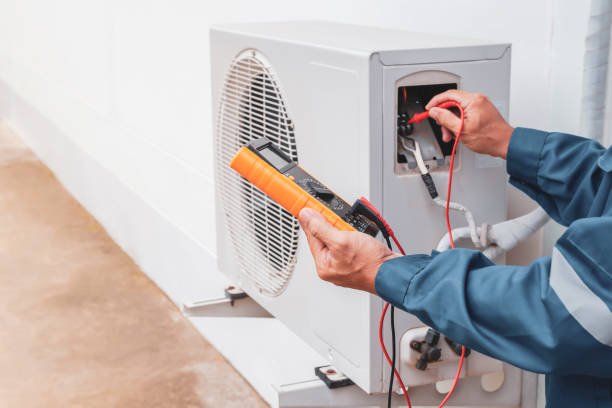Breaking Down HVAC Expenses: What Does the Average Job Really Cost?
Introduction
Navigating the world of heating, ventilation, and air conditioning (HVAC) can be a daunting task for homeowners and business owners alike. Whether it's an emergency repair, a seasonal tune-up, or a complete system installation, understanding the costs involved is crucial. In this extensive article, we will delve into the intricacies of HVAC expenses and provide you with a comprehensive breakdown of what the average job really costs. With insights from experts in the field, you'll be better equipped to make informed decisions about your HVAC needs.
Breaking Down HVAC Expenses: What Does the Average Job Really Cost?
When it comes to HVAC services, costs can vary significantly depending on factors like location, type of service needed, and specific system requirements. So, what does an average job really cost?
Let's break it down:
- Most HVAC companies charge a service call fee that ranges from $75 to $150. This fee covers the technician's time to assess your system and diagnose issues.
- Labor rates can differ widely based on geographical location and company reputation. On average, expect to pay between $50 and $150 per hour for skilled technicians.
- If parts need replacing—like compressors or ductwork—this can add significantly to your overall bill. Depending on the part, costs may range from $20 for minor components up to several thousand dollars for major upgrades.
- For new installations or replacements, costs can vary dramatically depending on the size and efficiency of the unit chosen. A standard central air conditioning unit might cost between $3,000 and $7,000 installed.
- Some companies offer maintenance plans that typically range from $150 to $500 annually, which can help in reducing long-term costs by preventing major repairs.
Factors Influencing HVAC Costs
Location Matters
Your geographical area plays an essential role in determining HVAC expenses. For instance, cities with higher living costs will likely have elevated labor rates compared to rural areas.
Type of System Installed
The type of HVAC system significantly impacts your overall expenditure:
- Central Air Conditioning Systems
- Ductless Mini-Split Systems
- Heat Pumps
- Furnaces
Age of Your Existing System
Older systems often require more frequent repairs and may not be as energy-efficient as newer models.
Energy Efficiency Ratings
Investing in high-efficiency units may have upfront costs but could save you money over time through reduced energy bills.

Common HVAC Services Explained
Emergency Repairs
HVAC emergencies can happen at any time—during scorching summers or frigid winters—and often require immediate attention.
- Average Cost: $150-$300 for emergency service calls.
Routine Maintenance
Regular check-ups can prevent costly breakdowns.
- Average Cost: $100-$200 per visit.
Installation Services
Installing new systems requires expertise.
- Average Cost: Ranges from $3,000 to over $10,000 depending on various factors.
Understanding Quotes from HVAC Companies Near Me
When you're considering hiring local contractors or searching "HVAC companies near me," getting quotes is essential.
What Should You Look For in a Quote?
How to Choose the Right HVAC Company?
Choosing an appropriate contractor is vital for ensuring quality service without overspending.

Tips for Selecting an HVAC Contractor
Understanding Seasonal Demand Fluctuations
The demand for HVAC services varies seasonally; thus prices may rise during peak seasons.
Peak Seasons
- Spring & Summer (Cooling)
- Fall & Winter (Heating)
Hidden Costs You Might Encounter
While getting estimates is crucial, hidden fees might sneak up on you if you’re not careful.
Common Hidden Charges
Financing Options Available for HVAC Systems
If upfront payments are daunting due to high initial costs for installations or significant repairs—financing could be a solution.
Types of Financing Options
DIY vs Professional Repair Work: What’s Best?
Some homeowners might consider DIY fixes; however—let's weigh those options carefully!
Pros and Cons of DIY Repairs:
| Pros | Cons | |------|------| | Lower Costs | Risk of Ineffective Repairs | | Sense of Accomplishment | Safety Hazards | | Time-Saving | May Void Warranties |
In most cases involving complex systems like HVAC—it's best left to professionals!
FAQ Section
1. What do I do if my AC stops working?
If your AC stops working suddenly, first check your thermostat settings and ensure your circuit breaker hasn't tripped before calling a professional technician.
2. How often should I service my HVAC system?
You should aim for at least two maintenance checks per year—one before winter and another before summer—to keep your system running efficiently.
3. Are there any tax credits available for new HVAC systems?
Yes! Depending on your country or state regulations—you may qualify for tax credits when installing energy-efficient units.
4. How much can I save by upgrading to an energy-efficient model?
Upgrading could save you anywhere from 10% to 50% annually on energy bills depending on usage patterns!
5. What should I do if my heater is making strange noises?
Strange noises often indicate a problem; turn off the unit AC repair Chaparral immediately—and consult with a qualified technician for further evaluation!
6. How long do HVAC systems typically last?
On average, well-maintained systems last around 15-20 years; however—this varies based on type and usage conditions.

Conclusion
Understanding "Breaking Down HVAC Expenses: What Does the Average Job Really Cost?" equips you with essential knowledge that empowers informed decisions when facing heating or cooling issues in your home or business environment! From knowing what influences pricing structures to choosing reliable contractors nearby—being proactive will lead to better experiences with fewer surprises down the road!
As always remember—the key lies in doing thorough research while consulting local experts who know their stuff! Happy heating & cooling!